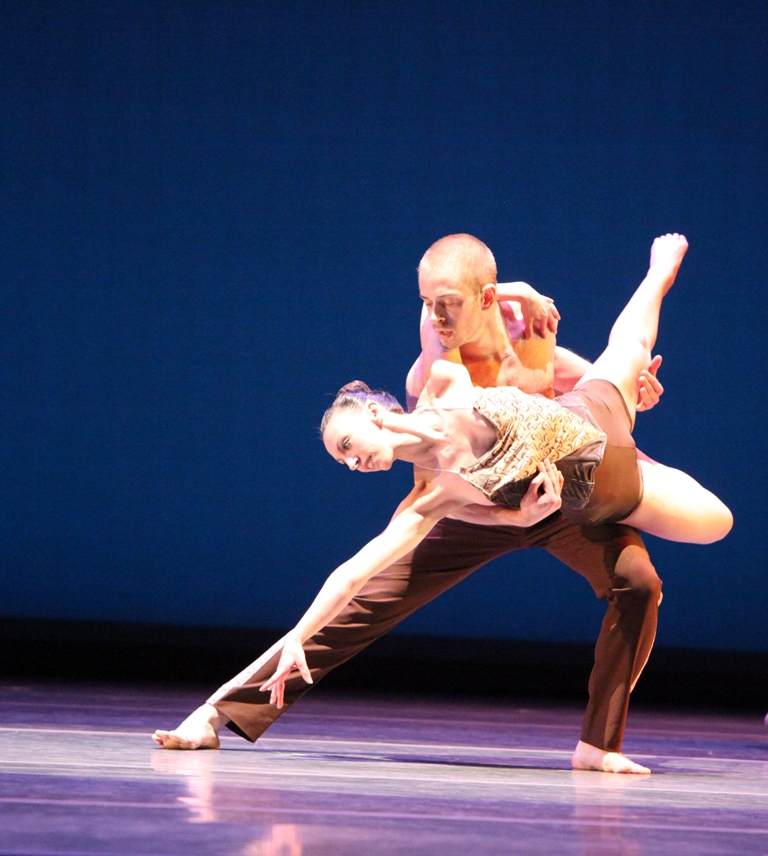An Interview with Nan Giordano
Urban Gateways is thrilled to partner with Giordano Dance Chicago to provide a free matinee for students at the Harris Theater, October 26, with the generous support of Alexandra and John Nichols. It’s Giordano’s 50th Anniversary this year, and we couldn’t be more proud to be a part of their season! About 1400 students will see this incredible performance, and we’re certain it will be memorable for them all. Here, Nan Giordano – Artistic Director of Giordano Dance Chicago – talks about her company’s incredible history, the passion behind jazz dance, and a deep commitment to arts education for young people.
Urban Gateways: I understand your father founded GDC. So I take it dance has always been a big part of your life?
Nan: I was the only one in my family that followed my father’s footsteps. I trained from him, knew from a very young age that this would be my path, and traveled the world with him. The interesting thing is that I saw both my parents operate not only artistically, but I also saw the administrative side. My mother was always right behind the scenes doing administrative work, a powerful woman. With my upbringing, and such close connections to both sides, I’ve adhered to both, and I enjoy both!
What makes GDC so innovative in its approach to jazz dance?
First and foremost, it’s deep and passionate, from the core, from deep within. It’s great to see beautiful technical dancers, but if you don’t feel the dancers, it’s dull and mechanical. One of our strengths is very proficient dancers who also have soul. It’s the marriage of those things that is the Giordano technique.
Tell me a little about the new American Rhythm Center in collaboration with the Human Rhythm Project. What makes this project so exciting?
It was Lane’s idea [Lane Alexander of the Human Rhythm Project] – bringing arts organizations of different disciplines together, everything from tap to classical Indian dance. There’s a unified space [The Fine Arts Building, 410 S. Michigan Ave.], and we can rehearse and offer classes there. So for the first time GDC will offer public classes! We have fitness, Latin ballroom, jazz. It’s for beginners, non-professionals. The company has never done this before. We’re so excited to be in the city after 50 years in Evanston! It’s opening up new doors.
What is GDC’s relationship with classroom education and arts education?
Outreach is part of our fabric. We designate a lot of time and energy to this. We have close partnerships with three CPS schools, two in Edgewater and one in Englewood, and we provide each school with an amazing 16-week program in science and health each year. It incorporates jazz dance into science classes. The students learn nutrition, anatomy, muscular science, they talk about pulse rates, and they dance. All told, we teach over 300 classes a year. All of our dancers go into the schools and do this; each of our partner schools gets at least four dancers from GDC. It’s something we really focus on.
We’re so thrilled about our GDC/UG matinee on October 26! And congratulations on GDC’s 50th anniversary. Why incorporate this matinee into your 50th anniversary season?
Because of our commitment to outreach. Commitment to the underserved, and to kids.
What’s the performance plan for the matinee? What will the students experience?
The kids will be seeing part of what we’re doing for our public performances that same weekend [October 26-27]; I’m still figuring out which parts. We’ll perform three pieces, plus we’ll have dialogues with the kids. The dancers too – the kids will have the chance to ask questions. It’s important to connect with them in that way.
What do you hope the students in the audience will take away from this matinee performance?
A lot of them, I’m sure, have never been to a professional dance performance. I want them to walk away energized, and to experience something they’ve never experienced. I want them to be excited, and to see how athletic this is! Most kids don’t understand how much athleticism is involved with dance. We want them to feel the excitement, and we want them to have a new understanding of the dedication and the passion behind dance, and perhaps what passion is. Sometimes at a young age, going to an art performance can spark something. This is not just men in tights, it’s something boys and girls can relate to. It’s accessible.


Can you be more specific about the content of your article? After reading it, I still have some doubts. Hope you can help me.